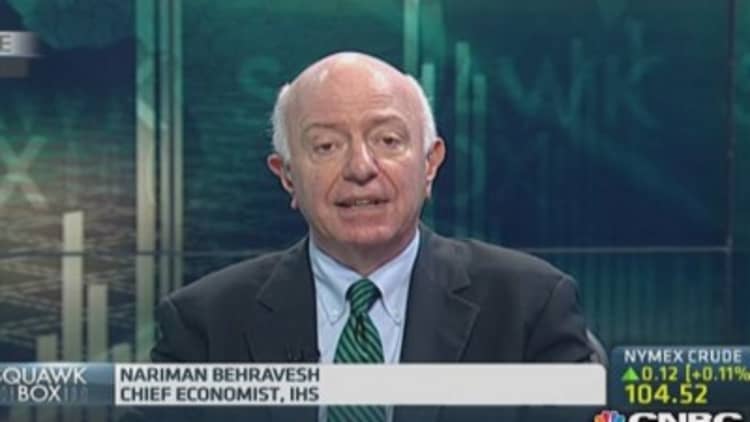Goldman Sachs just concluded its North American Energy Summit this week, and I couldn't help but wonder why the White House wasn't holding the event instead.
Goldman Sachs is one of Wall Street's "white shoe" firms, but it ain't the White House!
Tune in to CNBC's "Power Lunch" Friday, June 13 at 1pm ET. Ron Insana will be on to discuss this idea of "NOPEC" and why the Obama administration should be taking notes.
I have been suggesting for months in my public speaking engagements that President Barack Obama invite Canada's prime minister, Stephen Harper, and Mexico's president, Enrique Pena Nieto, to Washington to hold talks on creating "NOPEC"—the North American Organization of Petroleum Exporting Countries.
The name alone implies what's at stake in the world's petroleum wars.
Read MoreECB proves the war on deflation is raging
If combined, the resources of NAFTA partners, and subsequently, NOPEC powers, could easily change the dynamics of world oil markets, world financial markets and in the geopolitical sphere, as well.
With the U.S. leading the way in the fracking revolution, and with a newly liberalized energy sector in Mexico, North America could easily rival and exceed OPEC's production of crude oil, natural gas, distillates and other petrochemical products—making North America the envy of the energy world.

It saddens me that in the absence of any cogent fiscal policy efforts emerging in Washington, something as simple, and beneficial, as the notion of NOPEC has not made its way to the West Wing.
Canada, thanks to the relative glut of crude oil in the U.S., has made it known that it's looking to sell its energy products into new markets around the world. The United States, contemplating the easing of restrictions on crude oil exports, which have been in place since the Arab oil embargo, is poised to soon become not only a net exporter of refined energy products, but of crude, natural gas and residual fuels.
Mexico is inviting foreign firms into its own newly opened energy sector, long controlled by the government alone, which could significantly enhance energy output and make Mexico an even more important player on the world economic stage.
Read MoreIraq burns again: What has sparked the fire?
Combined, NOPEC could become the "swing producer" of energy products in world markets, helping to drive down prices of energy products that are currently hostage to OPEC's whims, geopolitical risk and, on occasion, excessive speculation that whips oil markets round and round.
In addition, a concerted effort by the Three Amigos could also expand the opportunity for North America to become the world's manufacturing hub, thanks to advantageous energy pricing, increasingly competitive labor markets, property rights protections, the rule of law and relative political stability.
That, in turn, could shake the ground underneath the feet of China, India, Japan and Vietnam, where comparative advantage is beginning to slip away.
Saying 'no' to Russia
In addition, NOPEC could counter-balance Russia, and other countries of the former Soviet Union, by becoming a more consistent supplier of energy products to our allies in Europe, and elsewhere, while taking market share from hostile countries, which are unlikely to have North America's best interests at heart.
It would behoove policymakers to take more proactive steps to coordinate policies among NOPEC members in order to ensure that North America regains its status as an OPEC-sized player in the market.
Read MoreOil spike eyed as Iraq violence escalates
Despite two oil shocks in the 1970s, two wars in the Middle East and the re-emergence of old adversaries who can influence the supply and price of energy, the U.S. has failed for 40 years to adopt a cogent energy policy that reflects the growing power of American know-how and the growing abundance of North American resources.
Updating the continent's outdated and inefficient energy infrastructure would be a good idea, as well.
But, for now, it seems like it's time to say, "yes," to NOPEC, because it allows us—in many ways—to say "no" to others.
Commentary by Ron Insana, a CNBC and MSNBC contributor and the author of four books on Wall Street. He also delivers a daily podcast, "Insana Insights," and a long-form weekly version, both available on iTunes and at roninsana.com. Follow him on Twitter @rinsana.


